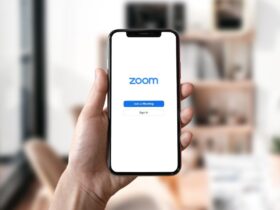In today’s digital world, coding has become one of the most in-demand skills. Whether you’re looking to change your career, enhance your current job skills, or simply explore a new hobby, learning how to code can open up endless opportunities.
The best part? You don’t need to spend a fortune to get started. There are plenty of free resources available online. In this article, we’ll explore where to find free online courses for coding, giving you a head start in the world of programming.
Where to Find Free Online Courses for Coding?
You can find free online courses for coding on several reputable platforms. Websites like Coursera, edX, Codecademy, freeCodeCamp, and Khan Academy offer high-quality, accessible courses that cover a wide range of programming languages.
These courses are designed to help beginners and experienced learners alike develop their coding skills without having to pay for education. While the courses are free, some platforms may charge for certificates or advanced features, but the core learning materials are accessible at no cost.
Top Places to Find Free Online Courses for Coding
There are several well-established platforms where you can find free coding courses. Here are some of the most popular options that offer high-quality education without costing a dime.
1. Coursera
Coursera partners with universities and organizations worldwide to provide a wide range of free coding courses. While Coursera offers paid certificates, you can access many courses for free if you don’t need a certificate. Their courses cover various programming languages, including Python, Java, HTML, and CSS. Additionally, Coursera offers specialization tracks, allowing you to dive deeper into a particular area like web development or data science.
Best for:
- Beginners looking for university-level courses
- Learners interested in structured learning paths
Popular Courses:
- Python for Everybody by the University of Michigan
- HTML, CSS, and JavaScript for Web Developers by Johns Hopkins University
2. edX
edX is another platform that partners with top universities like Harvard, MIT, and UC Berkeley. Like Coursera, edX offers a mix of free and paid content, but you can audit most courses for free. The platform covers a variety of coding topics, from front-end development to advanced machine learning.
Best for:
- Those seeking in-depth courses from prestigious institutions
- Learners who want to explore various coding languages and fields
Popular Courses:
- CS50’s Introduction to Computer Science by Harvard University
- Introduction to Python Programming by Georgia Tech
3. Codecademy
Codecademy is a beginner-friendly platform that focuses specifically on coding. It offers interactive lessons where you can practice coding in real-time as you learn. While Codecademy has a paid pro version with additional features, its free version includes plenty of foundational coding courses that cover HTML, CSS, Python, JavaScript, and more.
Best for:
- Absolute beginners who want hands-on practice
- Learners who prefer interactive lessons and immediate feedback
Popular Courses:
- Learn Python 3
- Introduction to HTML
4. freeCodeCamp
freeCodeCamp is a non-profit organization that offers an extensive, entirely free curriculum. Their courses are highly interactive and focused on real-world coding skills. As you progress, you’ll work on coding challenges, build projects, and earn free certifications. The platform also has a large community of learners and mentors who can help you along the way.
Best for:
- Learners who want project-based learning
- Those looking to build a coding portfolio
Popular Courses:
- JavaScript Algorithms and Data Structures
- Responsive Web Design
5. Khan Academy
Khan Academy is known for its educational content across a wide range of subjects, and coding is no exception. Their coding section focuses mainly on web development, including HTML, CSS, and JavaScript. The courses are presented in a clear, easy-to-understand format, making it a great resource for beginners.
Best for:
- Learners who are just starting with web development
- Kids and young adults interested in coding
Popular Courses:
- Intro to HTML/CSS: Making webpages
- Intro to JavaScript: Drawing & Animation
6. MIT OpenCourseWare
If you want access to some of the best educational resources in the world, MIT OpenCourseWare (OCW) is a fantastic option. MIT OCW offers free lecture notes, assignments, and exams from actual MIT courses. While these resources aren’t as interactive as other platforms, they provide a deep dive into computer science and programming.
Best for:
- Advanced learners seeking college-level courses
- Independent learners who prefer reading and self-paced study
Popular Courses:
- Introduction to Computer Science and Programming in Python
- Introduction to Algorithms
7. Udemy
Udemy is one of the largest online learning platforms with a vast selection of coding courses. While most courses require payment, you can often find free ones by filtering through the search options. Free courses cover everything from basic HTML to more advanced subjects like machine learning and AI. Udemy also frequently offers discounts, so keep an eye out for deals on paid courses as well.
Best for:
- Learners looking for quick, specific lessons
- Those who want to learn at their own pace
Popular Free Courses:
- Learn Python from Scratch
- Introduction to Web Development
What to Look for in Free Coding Courses
When choosing free online coding courses, there are a few key factors to keep in mind to make sure you’re getting the most out of your learning experience.
1. Course Structure
Look for courses with a well-defined structure. Whether you’re a beginner or have some experience, the course must break down coding concepts into manageable lessons. Courses that offer exercises and projects can help you apply what you’ve learned.
2. Instructor Expertise
Pay attention to who’s teaching the course. Platforms like Coursera, edX, and MIT OCW often feature courses from experienced university professors and industry professionals, which can ensure you’re getting accurate and up-to-date information.
3. Practice Opportunities
Coding is a skill best learned through practice. Platforms like Codecademy and freeCodeCamp offer hands-on exercises that let you code as you learn. This is especially important for beginners, as it allows you to apply new concepts and reinforce learning immediately.
4. Community Support
Having a community to turn to when you’re stuck can make a huge difference. freeCodeCamp, in particular, has a strong online community of coders who are always ready to help. Platforms with discussion boards, forums, or mentorship options provide valuable support.
Challenges of Learning Coding Through Free Online Courses
While free online courses for coding offer many benefits, there are some challenges to be aware of.
1. Lack of Structure in Some Platforms
Not all free platforms offer the same level of structure or guidance. Some courses may feel disjointed or lack enough hands-on projects, making it harder to apply what you learn.
2. Limited Personalized Feedback
Most free courses don’t offer direct, personalized feedback from instructors. You might need to rely on community forums or peer feedback to get help with specific coding challenges.
3. Motivation and Discipline
When learning for free, you must be self-disciplined. Without the commitment of a paid program, it’s easy to lose motivation. Set a consistent schedule and take advantage of the community support on platforms like freeCodeCamp to stay on track.
The Future of Free Online Coding Courses
The availability of free online coding courses is expanding as more organizations recognize the demand for coding skills. New technologies, such as artificial intelligence and machine learning, are creating even more opportunities in the tech field. In response, platforms are updating their courses and adding new ones to keep up with the latest trends.
Whether you’re a complete beginner or someone looking to refine your coding skills, there has never been a better time to explore free online courses. With a bit of commitment and focus, these courses can provide a solid foundation for a successful tech career.
Conclusion
If you’re asking Where To Find Free Online Courses for Coding, you’ll find that today’s learning landscape offers more opportunities than ever. Platforms such as Coursera, edX, Codecademy, freeCodeCamp, and Khan Academy provide free, high-quality lessons that help beginners and advanced learners build real coding skills.
Success comes from consistency. Stay motivated, practice often, and make use of community forums, peer support, and project-based exercises. Whether you want a new career path or simply want to grow a personal interest, these free resources give you a strong foundation and a clear direction for your coding journey.
FAQs
Can I learn to code for free?
Yes, there are many reputable platforms where you can find free online courses for coding, such as Codecademy and freeCodeCamp. While some platforms offer paid certifications, the learning materials themselves are often free.
How long does it take to learn coding?
The time it takes to learn coding depends on the individual and the programming language. For beginners, learning the basics of a language like Python or HTML may take a few weeks to a few months of consistent practice.
Do free coding courses provide certificates?
Some platforms, like Coursera and edX, offer free access to course materials but charge for certificates. freeCodeCamp, however, offers free certifications upon completion of their challenges and projects.
Which programming language should I learn first?
For beginners, Python is often recommended due to its readability and versatility. HTML and CSS are also good starting points if you’re interested in web development.
Do free coding courses help with getting a job?
Yes, many learners use free coding courses to build job-ready skills. By completing projects and practicing consistently, you can create a portfolio that helps you qualify for entry-level tech roles.












































Leave a Reply